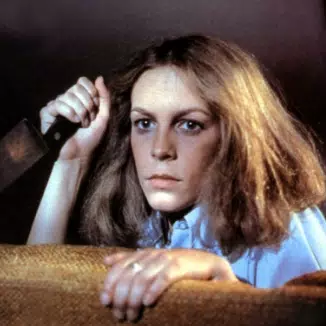Mike Flanagan, known for his direction of Oculus and Doctor Sleep, has become a prominent figure in Hollywood's horror film sphere, rivaling the likes of James Wan. While Wan has diversified into action and superhero genres, Flanagan remains faithful to horror. His 2017 film, Gerald's Game, initiated a collaboration with Netflix, setting the stage for his foray into the realm of series production. From The Haunting of Hill House to his latest venture, The Fall of the House of Usher, Flanagan has consistently pushed his creative boundaries while retaining his distinct style across the five series he's co-produced with Netflix. Upon viewing The Fall of the House of Usher, it's clear that this series could be considered Flanagan's most compelling and dramatic work to date. For some viewers, this series may serve as the reason they become drawn to Flanagan's style and find themselves revisiting the literary world of Edgar Allan Poe.
The Fall of the House of Usher mini-series, while titled after Poe's short story, borrows from numerous works by the author. It integrates elements from The Black Cat, The Gold Bug, The Murders in the Rue Morgue, and The Masque of the Red Death, featuring characters from Poe's literary universe. The series titles are also a play of Poe's poetry, with the first episode named after the opening line of The Raven, and the final episode simply titled The Raven. The frequent use of Poe's common motifs—black cats, ravens, Gothic churches—signifies Flanagan's appreciation of Poe's style.
However, The Fall of the House of Usher is more than an homage to Poe—it's a bold and inventive reinterpretation of his works. The series, while capturing the frantic, mad, irrational ambience of Poe's writings, sets the works in a more modern context. Moving away from the 17th-century backdrop of Poe's era, the series ambitiously explores a family saga spanning 70 years from 1953 to 2023. It not only narrates the downfall of the Usher family, but also its genesis, depicting the rise and eventual collapse of a quintessential American dream.
After catching the initial episodes, you might find the power plays among Roderick Usher's (Bruce Greenwood) six half-siblings reminiscent of Succession. Yet, the somber tone, string of fatalities and a mysterious woman all suggest that it features more complexities. Later in the second episode, a startling bloody incident lays the groundwork for a mystery centered on the Usher family’s downfall, kicking the series into high gear.

This enigma isn't merely a plot device - it's a testament to Flanagan's distinctive approach to horror. Episodes two through seven draw their titles from Poe's works, with the grim fate of the Usher family mirroring these narratives. Flanagan doesn't merely echo Poe's stories; he heightens the fatalities, crafting a sense of dread and horror even amidst the slow burn. The Fall of the House of Usher unveils the truth early on, displaying confidence in the riveting process of piecing together the mystery. Even as a Poe aficionado, I found the portrayal of death in this series to be quite jarring. It serves up an engaging spectacle.
Apart from the surprising and dramatic plots, the series also excels in character development that is more pronounced than Flanagan's previous work. What hides deeper behind the downfall of the Usher family is the tough and macabre journey of the Usher siblings, Roderick and Madeline. Their narrative stretches from a childhood marked by poverty and loss to a rise to prominence characterized by power and indulgence, and finally to the specter of death once again overshadowing their family.
As the end draws near, Roderick and Madeline are compelled to introspect on their tough ascent to power. Yet, their fate is predestined, and all Roderick and Madeline (Mary McDonnell) can do is reconcile with their pact with Death, embodied by Verna. The tale of Poe's novel The Fall of the House of Usher, retold through Roderick and Madeline, not only incites fear but also signifies the termination of evil.
Carla Gugino's depiction of the character Death, Verna, is notably compelling. This is Gugino's third collaboration with Flanagan, a recurring pattern among the cast. Gugino's character evolves into an embodiment of death itself, surfacing across various points of time under different disguises and signifying each Usher family member's demise. In the series, death is not merely a source of fear, but also a solemn executor mourning the innocent. Despite its monumental power, personal choice plays a significant part. In dealings with Roderick, Madeline, and Arthur Pym (Mark Hamill), Verna offers them the opportunity to decline, enabling each character to make their own decisions. This narrative technique marks a liberal perspective: individual choices play a substantial role in shaping our lives. Yet, the series also illustrates how some decisions can influence others' destinies.

By juxtaposing personal freedom with the notion that no one is entirely autonomous, the series highlights Flanagan's astute approach to real-world problems. Striving for success regardless of the consequences can have far-reaching effects, impacting even those who don't subscribe to such a philosophy. The ambition of Roderick and Madeline, coupled with their pact with Death, determines the fate of many others. In Flanagan's earlier works, characters confront adversity with love and sacrifice, like how Dani Clayton in The Haunting of Bly Manor fight against a neutral natural power. Behind such heroic tragedies is a mixture of splendor of virtue and despair brought by undefeatable darkness. The Fall of the House of Usher, in contrast, delivers a plain moral belief: evil will face retribution. As humans are the initiator of evil, the terror and brutalness of death are reduced to an inclination of doing justice to strike a balance between the good and bad.
The concept of holding wrongdoers accountable is anything but novel, but it’s understandable that Flanagan inscribe this idea into the narrative of The Fall of the House of Usher. The drug issue portrayed in can be viewed as an allusion of the consequences of capitalists’ power struggles. It's evident that the fictional drug Ligadone in the series mirrors the real-world OxyContin, and the Usher family is a symbolic representation of the Sackler family, the real-life leaders of Purdue Pharma. Despite numerous legal battles, significant fines, and ultimate bankruptcy, the repercussions faced by the Sackler family have failed to truly mirror the magnitude of their actions in reality. The fate of the Usher family could be interpreted as an alternative outcome for those who consider them the "worst family in America". Thus, it can be argued that the primary message Flanagan intends to convey to his audience is not about the dominance of evil or the profoundness of human love, but rather about the concept of divine justice.


























































Share your thoughts!
Be the first to start the conversation.